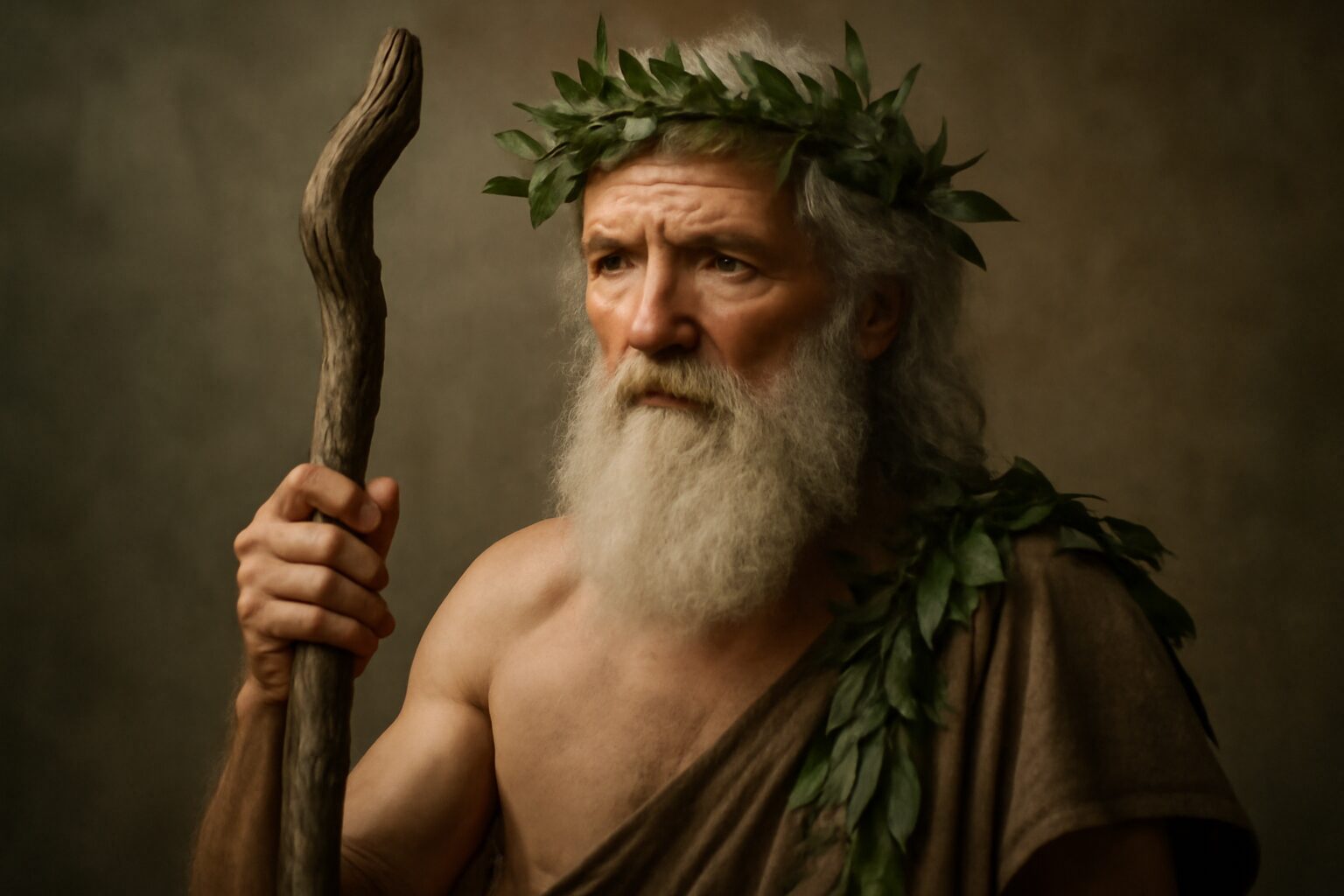Peneus: The River God of Thessaly
In Greek mythology, Peneus was the god of the river that bore his name—the Peneus River, the largest in Thessaly. As one of the many river deities, or Potamoi, Peneus was revered as a life-giving force, nourishing the land and its people. His waters were essential for agriculture, trade, and survival, making him a vital figure in Thessalian culture.
Mythology and Legends
Peneus is best known for his role in the myth of his daughter, Daphne, a nymph who was pursued by the god Apollo. To protect her from Apollo's advances, Peneus transformed Daphne into a laurel tree, an act that immortalized her in Greek lore. This story highlights Peneus' protective nature as a father and his connection to natural transformations.
Another legend tells of Peneus' involvement in the flood of Thessaly. When the region was submerged by Poseidon's wrath, Peneus carved a path through the mountains, allowing the waters to drain and saving the land. This act demonstrated his power over rivers and his role as a shaping force in the landscape.
Powers and Attributes
As a river god, Peneus possessed control over his waters—able to flood or recede them at will. He was often depicted as a bearded, reclining figure holding a water vessel or surrounded by reeds, symbolizing his dominion over the river. Unlike the more tempestuous sea gods, Peneus was generally seen as benevolent, providing fertility and sustenance to those who honored him.
Worship of Peneus included offerings of flowers, coins, and libations poured into his waters. Fishermen and travelers often prayed to him for safe passage, while farmers relied on his blessings for bountiful harvests.
Relationships and Significance
Peneus was the son of Oceanus and Tethys, two primordial deities of the sea, placing him among the ancient and respected river gods. His siblings included other major river deities like Achelous and Alpheus. His daughters, Daphne and Stilbe, linked him to other myths, reinforcing his importance in Greek storytelling.
Though not as widely worshiped as gods like Zeus or Athena, Peneus represented the sacredness of nature in Greek religion. His myths underscored the Greeks' reverence for rivers as sources of life and divine power. Even today, his legacy endures in the landscapes of Thessaly, where the Peneus River still flows—a testament to the enduring influence of ancient mythology.
Alternative Names for Peneus
God Name: Peneios (Greek)
An alternative Greek spelling or form of Peneus, often used in poetic or regional contexts.
God Name: Peneus (Roman)
The Romans adopted the Greek name Peneus directly, as they often did with river gods, without significant alteration.
God Name: Peneus Potamos (Greek)
A compound name meaning 'Peneus the River,' used to emphasize his role as a river deity in Greek mythology.
Tales about Peneus
The River God's Daughter and the Sun's Pursuit
In the lush valleys of Thessaly, Peneus, the river god, watched over his waters and his cherished daughter, the nymph Daphne. Her beauty was renowned, but it drew the unwanted attention of Apollo, who, struck by Eros' arrow, pursued her relentlessly. Desperate to protect her, Peneus used his divine power to transform Daphne into a laurel tree, her roots drinking deeply from his waters. Apollo, heartbroken, adopted the laurel as his sacred plant. To this day, the rustling leaves along the riverbanks are said to whisper Peneus' sorrow and love for his transformed child.
A Pact with the Earth Shaker
When a great drought threatened his realm, Peneus sought aid from Poseidon, god of the seas. Poseidon, moved by the river god's plight, struck the earth with his trident, causing a freshwater spring to burst forth near Peneus' banks. In gratitude, Peneus pledged that his waters would always flow toward the sea, honoring Poseidon's domain. This alliance ensured the fertility of the land for ages, and the people celebrated both gods in festivals where river met ocean.
Frequently Asked Questions
Who is Peneus in Greek mythology?
Peneus is a river god in Greek mythology, specifically the god of the river Peneus in Thessaly. He is one of the many rustic deities, or nature spirits, that represent natural features like rivers, forests, and mountains.
Why is Peneus important in Greek mythology?
Peneus is important because he represents the life-giving and sacred nature of rivers in ancient Greek culture. Rivers were seen as divine and essential for agriculture and survival, so river gods like Peneus were worshiped and respected.
What is the story of Peneus and Daphne?
Peneus is most famously known as the father of Daphne, a nymph who was transformed into a laurel tree to escape the god Apollo's pursuit. This myth highlights themes of nature, transformation, and divine intervention.
How do rustic deities like Peneus differ from major Greek gods?
Rustic deities like Peneus are minor gods or spirits associated with specific natural features, while major Greek gods like Zeus or Athena rule over broader domains like the sky or wisdom. Rustic deities were often local and more connected to everyday life in rural areas.
What can we learn from the worship of Peneus today?
The worship of Peneus reminds us of the ancient Greeks' deep connection to nature and their belief in the sacredness of natural resources. Today, it encourages respect for the environment and recognition of the vital role water plays in sustaining life.













